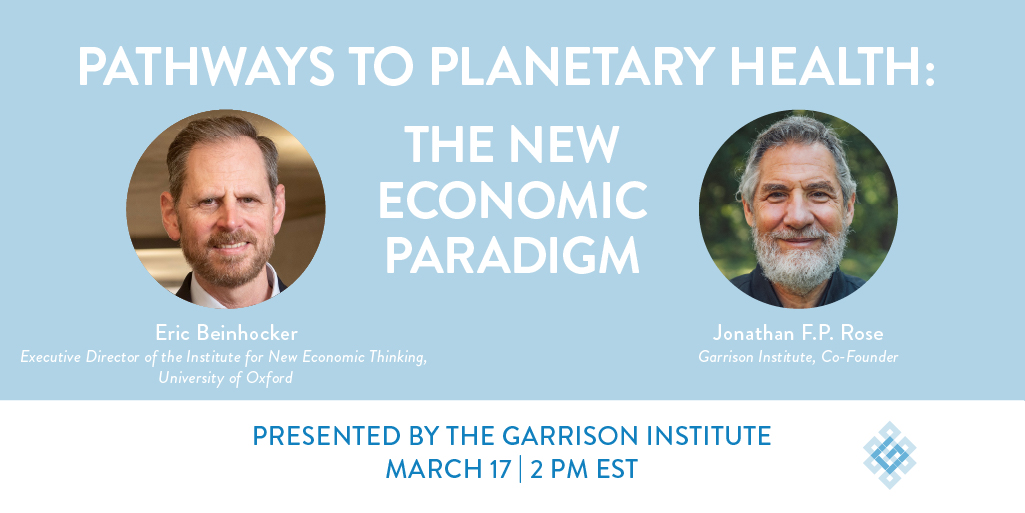Eric Beinhocker On the New Economic Paradigm
Eric Beinhocker is a Professor of Public Policy Practice at the Blavatnik School of Government, University of Oxford and Executive Director of the Institute for New Economic Thinking at the University’s Oxford Martin School. In conversation with Garrison Institute co-founder Jonathan F.P. Rose, Eric joined us in discussion on a new economic paradigm necessary to achieve planetary health.
In one recent article, Eric refers to markets as mechanisms for economic evolution that produce “solutions to human problems.” This is in contrast to growth, which is often mistaken as the end goal. To make progress, and achieve reasonable prosperity for ever greater numbers of people, Eric advises focusing on fair social contracts.
Fairness includes several parts: reciprocity, inclusiveness, merit, capability, and security. Understanding these concepts, and integrating them into social contracts, can improve equality and indicate fairness. Perceived fairness, in turn, predisposes us all to engage and to stretch our roles in society.
Ultimately, humanity is a cooperative species. Enabling systems and institutions that foster cooperation and tether us to reality helps us find better solutions to our problems. The question is whether we can make enough space for these new solutions and ideas to flourish.
“We can look across cultures and find values that appeal to our intuitive moral instincts and help us flourish as the cooperative species we are”
This interactive online event was part of a continuing series in the Garrison Institute’s Forum on Pathways to Planetary Health (PPH). Pathways to Planetary Health explores the moral, ethical, and human behavioral dimensions of the search for regenerative solutions, including Half-Earth, Ecological Civilization, Regenerative Economics, and The Common Good.
***
You can find more information about Eric Beinhocker and his work here.

